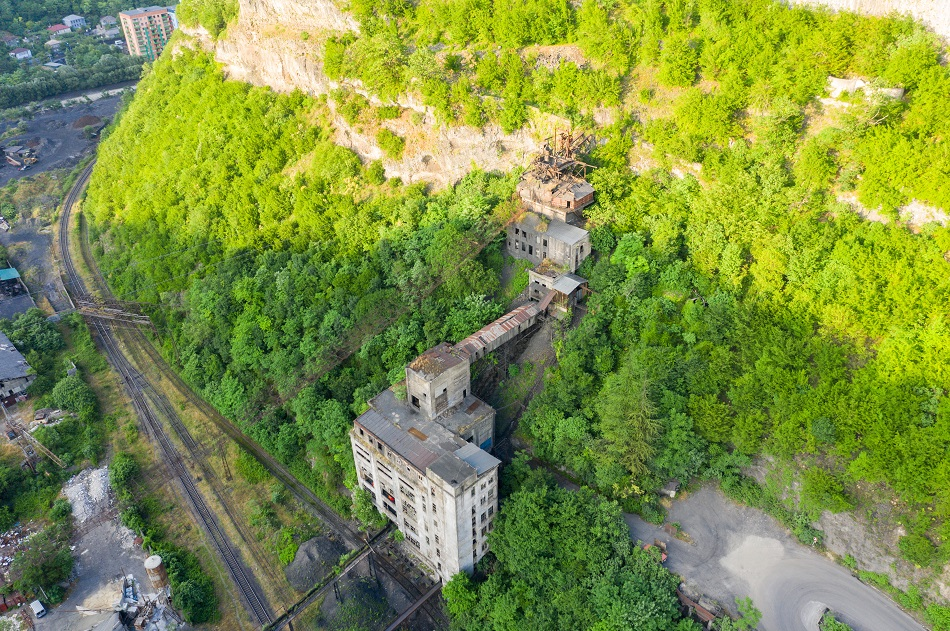Georgia is located in southwestern Asia between Russia and Turkey. The total area of the country is 69,700 km2, and it has a population of 4.003 million as of July 2018. The country enjoys a warm and pleasant climate.

Image Credit: Mikhail Starodubov/Shutterstock.com
From 1921 to 1991, Georgia was part of the USSR. On gaining independence, Georgia faced problems ranging from political instability and corruption to public discord. Russia’s interference complicated matters further. In 2008, the five-day conflict between Georgia and Russia led to Russia recognizing the independence of Abkhazia and South Ossetia. Recently, Georgia’s top foreign policy goals have been joining the EU and NATO.
Mining and associated industries contribute to a large part of its economy. The mining sector deals mainly with manganese, copper, ferroalloy, and gold production.
Georgia’s GDP as of 2017 is $15.16 billion and the country has a negative trade balance overall, importing a total of $8.08 billion across all sectors compared with $3.21 billion of exports. Exports decreased by an annualized rate of -0.3% between 2012 and 2017 from $3.31 billion. Copper ore accounts for 16.1% of all exports in Georgia.
Overview of Resources
The natural resources of Georgia include manganese deposits, iron ore, copper, minor coal and oil deposits. The country has reserves of coal, oil, and gas, though this is an underexploited resource. Mining experts state that Georgia was once known to possess one of the world's richest manganese deposits in the Sachkhere and Tchiatura regions.
Hydrocarbons
Georgia has traditionally relied on imports for its residential and industrial needs. Georgia stopped importing natural gas from Russia in 2007, instead favoring Azerbaijan. In 2013, it was reported that the government was looking to diversify its imports of natural gas.
Recent discoveries of natural gas in the country will no doubt help eliminate the issue of Georgia’s dependence on foreign natural gas and hydrocarbons and improve the economy of the country.
There are 2.16 million metric tons of proven oil reserves in the country as of 2016, but only a small amount has been exploited to date. BP and its partners have been operating in the country since the 1990s, investing $1.5 billion into sustainable development industries in the country. The country has 2 million tons of recoverable coal reserves.
.gif)
The map of Georgia. Image Credit: CIA Factbook
Metals
The Chiatura manganese ore mine is the largest source of manganese in Georgia and is one of the largest in the world. In 2016, it was estimated that the mine could produce up to 261,000 metric tons of ore a year. The mine supplies the Zestafoni ferroalloys plant.
The polymetallic ores deposit in the Bolnisi Region was mined by JSC Madneuli, a precious metals producer. The main ore types from the deposit are copper-barite ore, copper-zinc ore, gold-copper ore, barite-polymetallic ore, and quartzite ore.
Investment
The strategic location of Georgia between Europe and Asia has become an advantage to the nation making it a transit point for gas, oil, and other commodities. Several economic reforms have been successfully implemented, and the government has largely controlled corruption.
Currently, a major focus for the Georgian government is the exploration and development of its onshore and offshore oil and gas reserves through the Georgian Oil and Gas Corporation (GOGC). The GOGC participates in all exploration and extraction in the country through the use of PSAs (production sharing agreements) and is the main operation of the domestic gas transmission pipeline.
The Georgian government is now open to privatization and free markets. Experts believe that all these changes will certainly enable Georgia to attract foreign investment to its mining sector and ensure that its unexploited mineral deposits are fully utilized to generate revenue in the coming years.
Disclaimer: The author of this article does not imply any investment recommendation and some content is speculative in nature. The Author is not affiliated in any way with any companies mentioned and all statistical information is publically available.
Sources and Further Reading
Disclaimer: The views expressed here are those of the author expressed in their private capacity and do not necessarily represent the views of AZoM.com Limited T/A AZoNetwork the owner and operator of this website. This disclaimer forms part of the Terms and conditions of use of this website.